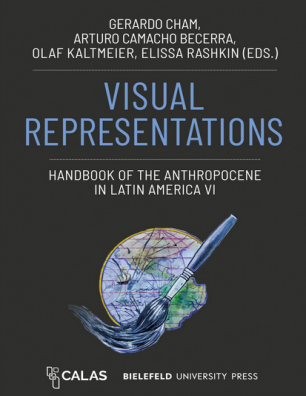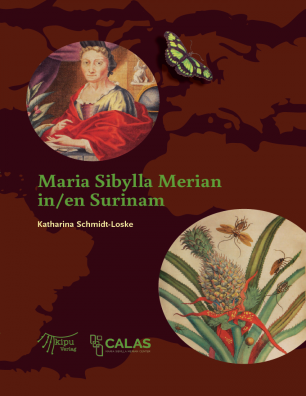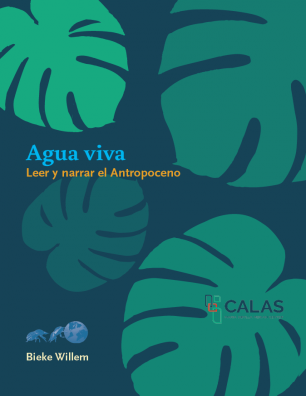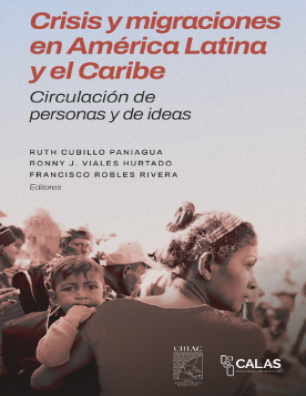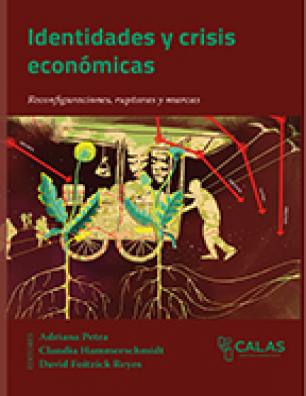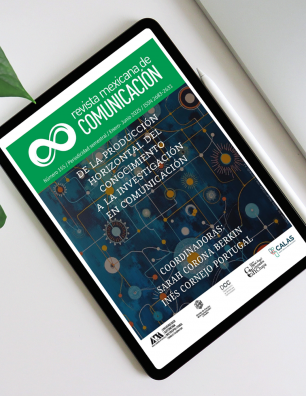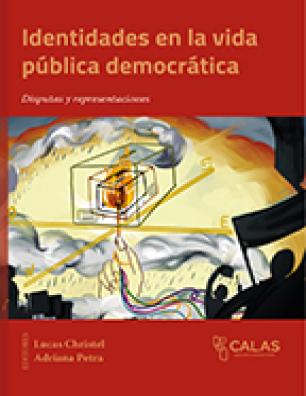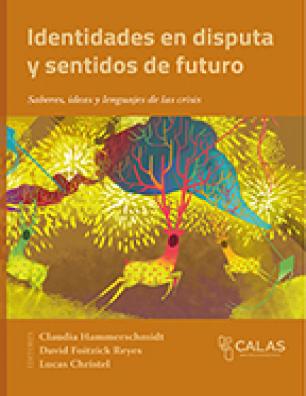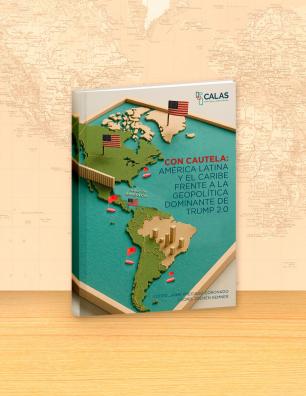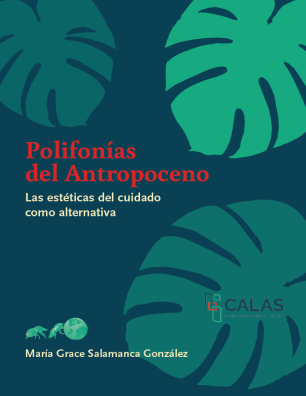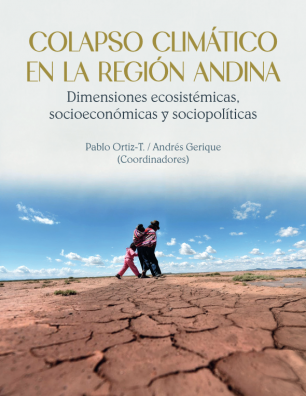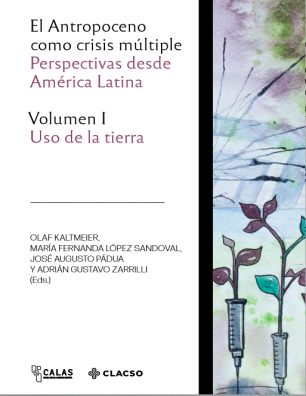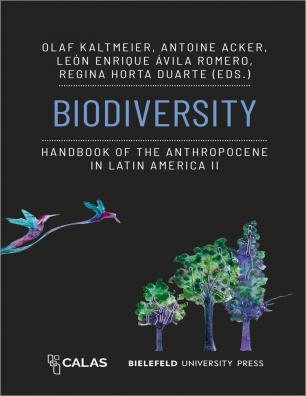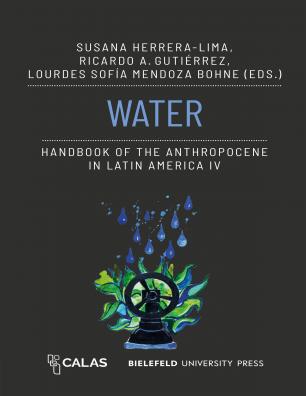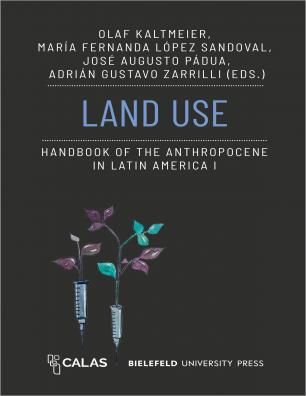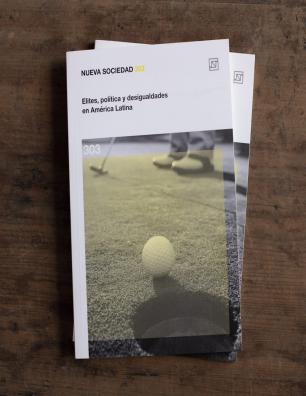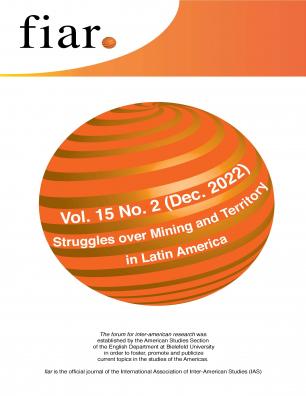Otros
Visual Representations Handbook of the Anthropocene in Latin America VI
Throughout the history of the Americas, sentiments toward the environment have been problematized and aestheticized through visual representations in various formats. In this volume of the Handbook »The Anthropocene as Multiple Crisis«, sixty entries examine the crises of mining, energy, land use, biodiversity, water, and climate change in the major macro-regions of Latin America from the colonial period to the contemporary era of the Anthropocene, featuring iconic images from this context.
Katharina Schmidt-Loske. Maria Sibylla Merian en Surinam
María Sibylla Merian (1647-1717) no solo fue una destacada artista de su época, experta en dibujo, pintura, grabado y aguafuerte. También sentía pasión por el estudio de los fenómenos biológicos, como las plantas de las que se alimentan las orugas y la metamorfosis de las mariposas. Las etapas de su vida la llevaron de Fráncfort a Núremberg y Frisia Occidental, y finalmente a Ámsterdam. En 1699, a los 52 años, partió de Holanda hacia Surinam, en Sudamérica, para realizar un viaje de investigación.
Bieke Willem: Agua viva. Leer y narrar el Antropoceno
Leer literatura es necesario para hacer frente a las múltiples crisis del Antropoceno. Leer con detenimiento, tomarse tiempo para acercarse a las palabras, es mucho más que una forma de resistencia política frente a las ideas de progreso y aceleración inherentes al sistema mundial capitalista responsable de estas crisis. Este ensayo presenta una lectura atenta de novelas y cuentos hispanoamericanos que narran la estrecha relación entre el ser humano y „la naturaleza“ en el contexto del Antropoceno.
Crisis y migraciones en América Latina y el Caribe. Circulación de personas y de ideas
Migration in Latin America and Caribbean is no longer a one-way phenomenon toward the United States, but has become a global, complex, and multiscale experience linked to contemporary crises that reinforce each other: inequalities, climate change, conflicts, pandemics, and technological transformations. This book explores the causes, implications, and tensions of these mobilities, considering the structural, institutional, environmental, and cultural factors that shape them, as well as their gender, ethnic, and class dimensions.
Identidades estratégicas en los pueblos indígenas. Narrativas, producciones y representaciones
En un contexto de neoliberalismo exacerbado, las ampliaciones de derechos y de reconocimiento de las identidades indígenas en América Latina/Abya Yala se combinan de modos muy complejos con nuevas formas de exclusión socioeconómica y simbólica. Este volumen analiza las resistencias a una homogeneización global de las diferencias e indaga cómo las distintas matrices hegemónicas contrastan y se confrontan con la emergencia de identidades estratégicas indígenas.
Identidades y crisis económicas. Reconfiguraciones, rupturas y marcas
¿Cómo influyen las crisis económicas en las identidades de los sectores vulnerables de América Latina? ¿De qué manera emergen las luchas sociales como respuestas a estas crisis? ¿Qué papel juegan la informalidad y la precariedad laboral en la construcción de nuevas identidades? ¿Cómo pueden las experiencias de Cuba y Chile ofrecer lecciones para enfrentar las crisis actuales en la región?
Revista Mexicana de Comunicación n°155 | De la Producción Horizontal del Conocimiento a la investigación en comunicación
La Revista Mexicana de Comunicación y CALAS Center colaboraron para la edición y publicación del número 155. Es coordinado por Sarah Corona Berkin, fundadora de la Red de Producción Horizontal del Conocimiento del CALAS y ex-directora del mismo centro, e Inés Cornejo, miembro de la Red y referente en las prácticas de escritura creativa horizontales.
Identidades en la vida pública democrática. Disputas y representaciones
En América Latina, el siglo XXI ha transformado radicalmente la política: los partidos tradicionales pierden fuerza, surgen liderazgos personalistas y movimientos sociales demandan mayor representación. Identidades en la vida pública democrática explora esas tensiones y analiza cómo la desconfianza en las instituciones abre paso a nuevas formas de participación, pero también a discursos polarizantes. ¿Cómo construyen legitimidad los gobiernos en tiempos de incertidumbre? ¿De qué manera grupos históricamente marginados –como pueblos originarios o trabajadores informales– logran visibilidad?
Identidades en disputa y sentidos de futuro. Saberes, ideas y lenguajes de las crisis
Abordar las disputas identitarias en América Latina/Abya Yala durante los siglos XX y XXI no solo es complejo, sino que plantea interrogantes fundamentales. ¿No serán identidad y crisis nociones que se implican mutuamente? ¿Acaso la identidad no es un concepto inherentemente dinámico y fluido, en constante (re) construcción? ¿Qué nuevos sentidos se le da hoy en día a esta noción? ¿Hasta qué punto emergen y se consideran identidades tradicionalmente invisibilizadas (como las indígenas) o no consideradas tales (como las no-humanas: las plantas, los animales, o los territorios)?
Con cautela: América Latina y el Caribe frente a la geopolítica dominante de Trump 2.0
En el marco de las transformaciones globales que definen el primer cuarto del siglo XXI, el segundo mandato de Donald Trump ha reconfigurado el escenario geopolítico, desafiando el orden internacional liberal y promoviendo una agenda basada en el nacionalismo del "America First".
María Grace Salamanca González. Polifonías del Antropoceno Las estéticas del cuidado como alternativa
Es urgente reflexionar sobre las crisis. La racionalidad moderna no ha sido suficiente para cambiar el comportamiento y las políticas del sistema mundial moderno, colonial, capitalista y patriarcal. Las crisis del Antropoceno son de naturaleza ecológica, biológica, sanitaria, política, económica, antropológica, ética y estética. Este ensayo se basa en una serie de talleres con diferentes colectivos sobre «La estética del cuidado del Antropoceno», realizados entre diciembre de 2022 y febrero de 2023, principalmente en el área metropolitana de Guadalajara (México).
Pablo González Casanova (1922-2023). Una introducción a su obra
Pablo González Casanova rebasa cualquier intento por clasificar una tipología de saberes especializados en disciplinas del conocimiento: fue historiador, sociólogo, economista, politólogo y antropólogo de lo local y del mundo, pasando por América Latina y el Caribe. Su espíritu científico lo llevó a dialogar con las ciencias sociales que se producen por dentro y por fuera del paradigma crítico.
Environments of Inequality: Crisis, Conflicts, Comparisons
Multiple environmental crises and persistent patterns of intersecting inequalities are major global concerns. This edited volume contributes to a better understanding of environments of inequality by examining their various formations and expressions, from the colonial period to the present, with a strong (but not exclusive) focus on the Americas. The nine case studies especially reflect on the interrelationship between social inequality and the natural environment. The authors address crises, conflicts, and comparisons of inequalities from various disciplinary and regional perspectives.
Colapso climático en la región Andina. Dimensiones ecosistémicas, socioeconómicas y sociopolíticas
Este libro, resultado de la colaboración entre la Universidad Politécnica Salesiana de Ecuador y la Friedrich Alexander Universitat de Erlangen-Nürnberg, ofrece una visión integral y multidisciplinar del cambio climático en la región andina. Abarca desde los ecosistemas únicos hasta las dinámicas sociales y políticas que afectan a las comunidades, invitando a reflexionar sobre cómo esta crisis global transforma una de las zonas más diversas del mundo.
El Antropoceno como crisis múltiple. Volumen I. Uso de la tierra
Las metáforas centrales en el imaginario del uso de la tierra en América Latina han sido los mitos duales de la tierra virgen para conquistar y de “El Dorado” para explotar. Partiendo de estas figuras originarias, el presente volumen se focaliza en la apropiación social y el uso de la tierra a partir de las transformaciones de la materia, las prácticas sociales, sus regulaciones políticas y legales, así como los imaginarios construidos sobre los territorios.
Biodiversity – Handbook of the Anthropocene in Latin America II
Biodiversity should not be understood in biological terms only and as a thing apart from society, but rather as biocultural diversity present in the social world and in various cultures. Such a perspective might allow to relieve social conflicts as well as abuses of power, and slow the appropriation of the biosphere. This volume of the Handbook »The Anthropocene as Multiple Crisis« focuses on biodiversity in the main macro-regions of Latin America from the colonial regime to the contemporary era of the Anthropocene.
Water. Handbook of the Anthropocene in Latin America, Vol. IV
Conflicts and struggles like urbanization processes and the productive use of water have impacted the relationship of Latin American and Caribbean societies with water for centuries. This volume of the Handbook »The Anthropocene as Multiple Crisis« focuses on water in the main macro-regions of Latin America from the colonial regime to the contemporary era of the Anthropocene. The contributions enrich contemporary debates surrounding the genealogy of the Anthropocene in Latin America with critical perspectives from the social sciences and the humanities.
Land Use. Handbook of the Anthropocene in Latin America, Vol. I
Socio-ecological conflicts about land use in Latin America are complex: they involve various actors and flare up due to the dynamics of colonization, spatial appropriation, and the commodification of land. This volume of the Handbook »The Anthropocene as Multiple Crisis« focuses on land use in the main macro-regions of Latin America from the colonial regime to the contemporary era of the Anthropocene.
Elites, política y desigualdades en América Latina
Los efectos de la pandemia de covid-19, junto con la vigencia política del progresismo y la pervivencia de la protesta social, han vuelto a subrayar la cuestión de las desigualdades y, con ella, la de las elites. Investigadoras e investigadores del Laboratorio de Conocimiento “Confrontando las desigualdades en América Latina: Perspectivas sobre riqueza y poder explorar estas dimensiones en el tema central del número 303 de la revista Nueva Sociedad, desde diferentes ángulos y perspectivas.
Índice:
FIAR Vol. 15.2 (Dec. 2022) Struggles over Mining and Territory in Latin America
The nexus between extractivist activities, mining conflicts and territory has become increasingly visible and discussed both in social movements and local struggles as well as in academic debates, especially in Latin America (Göbel y Ulloa 15).


